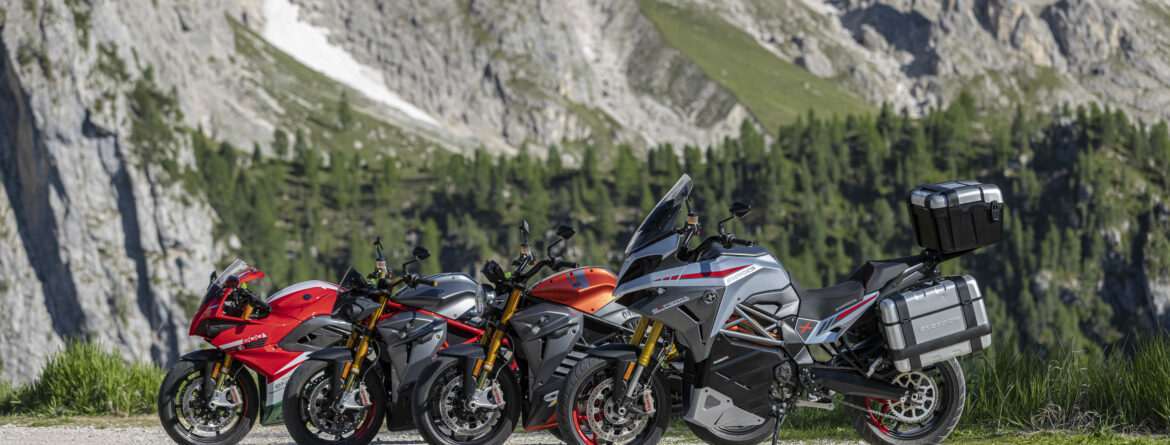
It is difficult to understate the importance of California’s adoption of the trailblazing Advanced Clean Cars II rule designed to ensure that by 2035, 100% of new cars and light trucks (as well as motorcycles) sold in California will be zero-emission vehicles.
The stated objective of this ambitious measure is to reduce the emissions that cause climate change by stopping any further loss of the ozone layer thanks to a reduction in the pollutants that cause it – principally oxides of nitrogen (NOx) and hydrocarbons (HC) from fuel combustion.
The new regulation accelerates requirements that manufacturers deliver an increasing number of zero-emission light-duty vehicles each year beginning in model year 2026. Sales of new ZEVs (Zero Emission Vehicles) and PHEVs will start with 35% that year, build to 68% in 2030, and must reach 100% in 2035. Significant penalties will be assessed for those who cannot comply, with a system of carbon credits to help ease the transition for manufacturers to do so.
Manufacturers of compliant electric vehicles will be awarded these carbon credits depending on vehicle characteristics including range, battery capacity, top speed, and fast charging capability.
Among these eligible manufacturers is expected to be Energica Motor Company, whose motorcycles are currently sold in California and according to the proposed carbon credit criteria, will be awarded the maximum number of credits per motorcycle unit possible.
CARB posted the proposed language on the rulemaking website on November 28th and the finalized regulations are expected to come into effect next Spring.
A Public Hearing to review the impact of the proposed Zero-Emission Vehicle regulations on motorcycles will be convened at the CalEPA building on January 25th, 2024, in Sacramento.
Energica has been invited to participate at the Hearing, as a prominent manufacturer of premium electric motorcycles with the longest range, largest battery, power and top speed, as well as the first to provide DC Fast Charging capability.
Despite recent news events, the continuing regulatory process for the Advanced Clean Cars II rule indicates that the state of California remains committed to the objectives set out in Governor Newsom’s Executive Order N-79-20.
Additional states have pledged to follow a similar approach to CARB, so the impact of these regulations even if not implemented as quickly in those states, will nevertheless be profound:
- Connecticut.
- Delaware.
- Maine.
- Maryland.
- Massachusetts.
- New Jersey.
- New Mexico.
Further information on the Public Hearing from CARB is enclosed below:
| New On-Board Diagnostics and Zero-Emission Motorcycle Requirements |
| The California Air Resources Board (CARB or Board) will conduct a public hearing at the date and time noted below to consider approving for adoption the proposed amendments to the On-Road Motorcycle (ONMC) emission standards and test procedures and adoption of new provisions relating to ONMCs under Division 3, Chapter 1, Article 2 (Approval of Motor Vehicle Pollution Control Devices) under Title 13, California Code of Regulations (collectively “Proposed Regulatory Action”). Date: January 25, 2024 Time: 9:00 a.m. In-Person: California Environmental Protection Agency California Air Resources Board | Byron Sher Auditorium 1001 I Street Sacramento, California 95814 Remote Option: Zoom This public meeting may continue at 9:00 a.m., on January 26, 2024. Please consult the public agenda, which will be posted ten days before the January 25, 2024, Board Meeting, for important details, including, but not limited to, the day on which this item will be considered, how to participate via Zoom, and any appropriate direction regarding a possible remote-only Board Meeting if needed. Background Motor vehicles contribute a significant amount of smog-forming pollutants and the largest portion of greenhouse gas (GHG) emissions in California. While ONMCs comprise a small portion of vehicle emissions, they are a disproportionately large contributor. ONMCs account for just 0.4% of vehicle miles traveled yet contribute 0.6% of oxides of nitrogen, 6.3% of reactive organic gases, and 3.6% of carbon monoxide. Without action, ONMC emissions will continue to grow in relation to other mobile sources that are subject to increasingly stringent emission limits and zero-emission vehicle requirements. The Proposed Regulatory Action is included in the 2022 State Strategy for the State Implementation Plan (SIP) and is part of CARB’s comprehensive effort to meet air quality standards. The Proposed Regulatory Action would accelerate zero-emission motorcycle (ZEM) sales in California while also reducing emissions from remaining internal combustion-powered vehicle sales by greatly harmonizing with more stringent European Union 5 (Euro 5) exhaust emissions standards, imposing more stringent evaporative emissions standards, and adopting additional on-board diagnostic (OBD) requirements beyond Euro 5. Further, all new ONMC sales that are under 50 cubic centimeters (cc) of engine displacement would be zero-emission by 2028. The proposal will drive the sales of ZEMs to 50 percent in California by the 2035 model year, thereby reducing GHG and smog forming emissions. Doing so is critical to meeting California’s public health goals and air quality targets. Inquiries concerning the substance of the Proposed Regulatory Action may be directed to the agency representative, Jason McPhee, P.E., Air Resource Engineer, Engineering and Regulation Development Section, at (279) 208-7023 or Scott Bacon, Air Resource Supervisor, Engineering and Regulation Development Section, at (279) 842-9122. |
